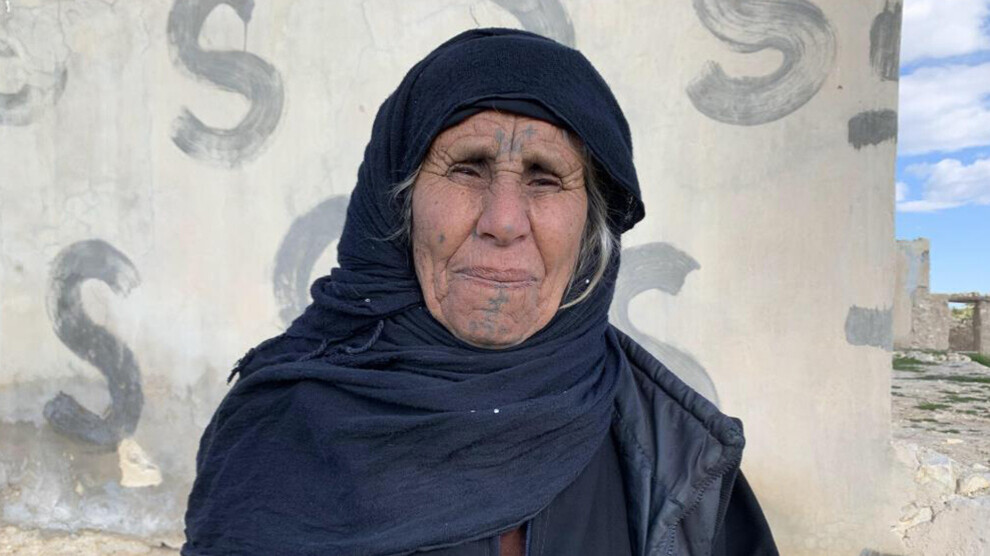Yaza Jasêm passes ‘Deq’ art down to next generation
Yaza Jasêm is determined to pass the art of “Deq (Kurdish tattoos)” down to the next generation although she is 70 years old. She calls on young people to “preserve your culture and traditions.”

SÎBÎLÎYA ÎBRAHÎM
Manbij- Traditions are behaviors passed down within a group or society with symbolic meaning or special significance with origins in the past. The tradition or art of “Deq (Kurdish tattoos)” is commonly found among Kurdish women. Deq is usually practiced on hands and other parts of bodies by using different materials.
70-year-old Yaza Jasêm, mother of nine, lives in the Halûla village of Manbij’s Abu Qilqil district. Speaking about how “deq” is practiced, she said, “The ink is made from breast milk and lampblack. We mix them and then draw designs on the skin by using a needle. We draw different designs according to the social structure, climate, traditions and customs of each country. But the materials used to practice deq are the same everywhere.”
‘Cultures and traditions must be preserved’
Yaza Jasêm learned how to practice deq from her mother. “The practice of deq has become less common these days. Now special materials are used to create tattoos; however, people do not like such tattoos very much. Before, tattoos were the symbols of beauty for women. I call on women and young people to preserve their culture and traditions and pass them down to the next generations.”
